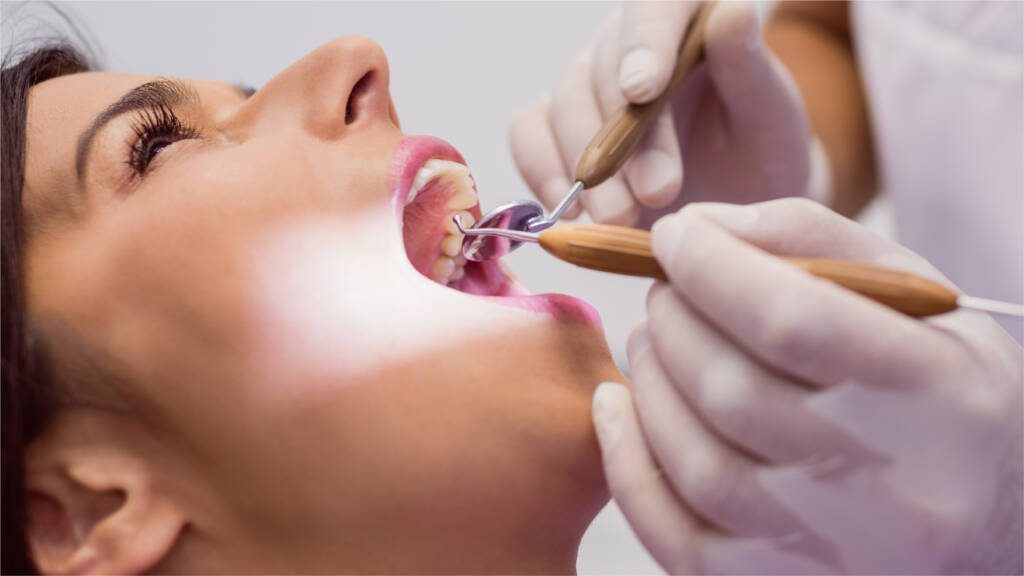It is the area responsible for controlling and minimizing injuries that may arise in our oral cavity. With regard to dental cavities, there are many things that can be done to prevent them from arising or evolving uncontrollably:
– Appropriate use of fluoride;
– Correct brushing technique;
– Correct toothpaste;
– Complementary means for oral hygiene;
– Fissure sealing;
– Periodic X-rays;
– Consultations every 6 months.
This area is also crucial in the reduction of bacterial plaque, dental pigment and dental calculus.
Finally, it is the area that connects systemic or disease factors with oral health and vice versa. Often patients with certain diseases and/or daily medication need to adopt other measures, whether in terms of treatments or oral hygiene care.
Preventive dentistry can also serve to prevent orofacial injuries in sports with the manufacture of individualized mouthguards.

Frequently Asked Questions
Baby teeth should be brushed from the moment the first tooth erupts. Before the teeth come in, you can clean the gums, tongue and cheeks with a damp gauze or finger pad to remove plaque.
From 6 months or when the first milk tooth appears, you can use children’s pastes that contain only 500ppm of fluoride. From the age of 2, you should switch to a paste with 1000 ppm of fluoride, but the amount should be equal to the size of the child’s little finger nail (almost the size of a grain of rice). From the age of 6, together with when the child stops swallowing the paste, they can switch to an adult paste with 1450ppm of fluoride.
We advise medium or soft brushes in general. However, during the consultation we will be able to indicate another type of brushes if we think it is more appropriate. Manual or eletric toothbrush both works, if correctly used.
As a general rule, toothpaste should contain 1450ppm of fluoride, with the exception of small children.
Mouthwashes alone do not solve the problem of cavities. It is necessary to mechanically remove the bacterial plaque accumulated on the surface of our teeth with a toothbrush and dental floss.
Pacifier and other sucking habits should be discontinued around 3 years of age.
That’s a myth. Mothers with healthy teeth, with correct and adequate hygiene habits during pregnancy, go through the gestation period without dental problems Talk to your Dentist about the care to be taken during pregnancy. If you are pregnant and want to go to the dentist, you can take advantage of the Dental Check program funded by the Portuguese NHS, you should talk to your family doctor about the matter (SISO – Cheques Dentista).
You should look for the tooth and/or piece of tooth that broke, keep it inside a container with serum, or milk or even the child’s saliva and seek help from an oral health professional as soon as possible. In some situations it is possible to re-implant the avulsed tooth in the first few hours or to glue the dental fragments.
No. Both are effective when used correctly. If you like one more than the other and you are using it well, you don’t need to replace it. It should be noted that each of them has a specific brushing technique.
The first dental appointment should be scheduled as soon as the first milk tooth appears and then periodic checks should be carried out every 6-12 months to control tooth eruption and prevent the early appearance of tooth decay, incorrect jaw growth and other problems.
The fear can be overcome with patience and with the child’s education on the part of the parents and Dentist. It is important to understand why they are afraid. Was it gained from a bad experience? Have the parents’ fears been passed on to the child at home?
The child needs to have confidence in his Dentist before letting him have any treatment. We should not underestimate the first consultations where it seems that “nothing is being done”, while children are gaining confidence sitting in the dentist’s chair and with the professional.
It is important to understand the fears and apprehensions so that we can overcome this issue together. If necessary, there are therapies to make people less anxious and sedated.

